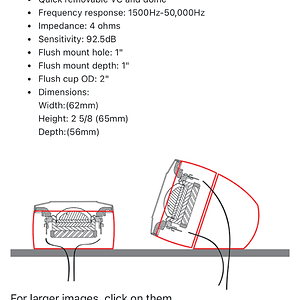What Is Dysautonomia?
In the 19th century there used to be a condition called neurasthenia. People would find themselves suddenly unable to function due to a host of inexplicable symptoms, often including fatigue, weakness, strange pains, dizziness and passing out. Doctors would not find anything to explain these symptoms, so they were attributed to a "weak nervous system," or neurasthenia. Women with neurasthenia (men were not given this diagnosis, by and large) were often confined to their beds, where they would either recover or eventually die. And while nobody knew what caused this condition, everyone -- doctors and laymen alike -- took it seriously.
Most modern doctors who hear about this mysterious condition merely shake their heads in wonder. Few seem to consider the possibility that neurasthenia is still with us. Consequently they are less capable of recognizing the manifestations of this condition than were their old-time counterparts, and tend to be far less sympathetic to its victims.
The Autonomic Nervous System And Dysautonomia
The autonomic nervous system controls the “unconscious” bodily functions, such as heart rate, digestion, and breathing patterns. It consists of two parts: the sympathetic system and the parasympathetic system. The sympathetic system can best be thought of as controlling the “fight or flight” reactions of the body, producing the rapid heart rates, increased breathing, and increased blood flow to the muscles that are to escape danger or cope with stress. The parasympathetic system controls the “quiet” body functions, such as the digestive system. So: the sympathetic system gets us ready for action, while the parasympathetic system gets us ready for rest. Normally, the parasympathetic and sympathetic components of the autonomic nervous systems are in perfect balance, from moment to moment, depending on the body’s instantaneous needs.
In people suffering from dysautonomia, the autonomic nervous system loses that balance, and at various times the parasympathetic or sympathetic systems inappropriately predominate. Symptoms can include frequent vague but disturbing aches and pains, faintness (or even actual fainting spells), fatigue and inertia, severe anxiety attacks, tachycardia, hypotension, poor exercise tolerance, gastrointestinal symptoms such as irritable bowel syndrome, sweating, dizziness, blurred vision, numbness and tingling, and -- quite understandably -- anxiety and depression.
Sufferers of dysautonomia can experience all these symptoms or just a few of them. They can experience one cluster of symptoms at one time, and another set of symptoms at other times. The symptoms are often fleeting and unpredictable, but on the other hand they can be triggered by specific situations or actions. (Some people have symptoms with exertion, for instance, or when standing up, or after ingesting certain foods.) And since people with dysautonomia are usually normal in every other way, when the doctor does a physical exam he or she often finds no abnormalities.
What Causes Dysautonomia?
Dysautonomia can be caused by many different things; there is not one single, universal cause. It seems clear that some patients inherit the propensity to develop the dysautonomia syndromes, since variations of dysautonomia often run in families. Viral illnesses can trigger a dysautonomia syndrome. So can exposure to chemicals. (Gulf War Syndrome is, in effect, dysautonomia: low blood pressure, tachycardia, fatigue and other symptoms that, government denials aside, appear to have been triggered by exposure to toxins.) Dysautonomia can result from various types of trauma, especially trauma to the head and chest. (It has been reported to occur after breast implant surgery.) Dysautonomias caused by viral infections, toxic exposures, or trauma often have a rather sudden onset. Chronic fatigue syndrome, for instance, most classically begins following a typical viral-like illness (sore throat, fever, muscle aches, etc.) but any of the dysautonomia syndromes can have a similar onset.
What Becomes Of People With Dysautonomia?
Fortunately, the prognosis appears far better than it was in the days when the disorder was called neurasthenia. This is likely because bed rest is no longer considered the treatment of choice. Most victims of dysautonomia eventually find that their symptoms either go away or abate to the point that they are able to lead nearly normal lives. Sometimes, in fact, the probability that things will ultimately improve on their own may be the only thing that keeps some of these individuals going.
But even though the symptoms eventually improve in most cases, many people with dysautonomia experience symptoms that completely disrupt their lives, and the search for competent medical assistance in rendering their symptoms tolerable is too often a difficult one.


